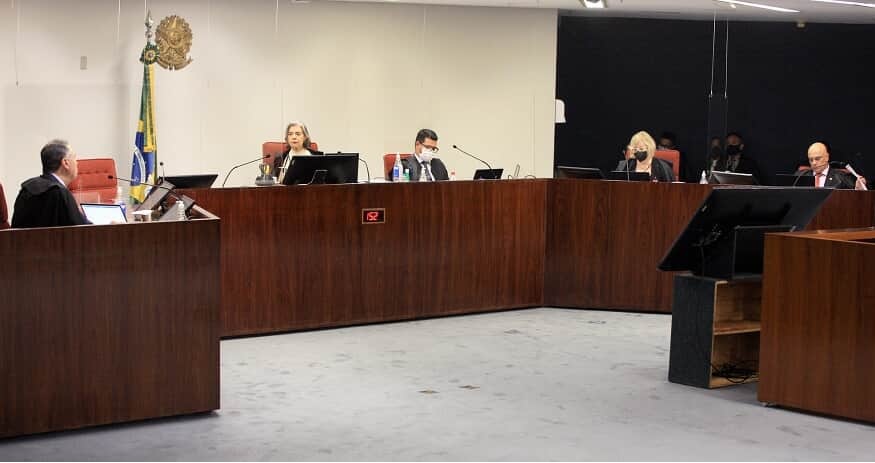Brazil’s Supreme Court on Tuesday rejected an extradition request from Turkey for a businessman due to his links to the faith-based Gülen movement, saying there is no guarantee the businessman will receive a fair trial if he is extradited, the Bold Medya news website reported.
Businessman Yakup Sağar, 54, the owner of a shirt factory in Sao Paulo, is a member of the Gülen movement, which is accused by the Turkish government of masterminding a failed coup in July 2016 and has been named a terrorist organization. The movement strongly denies any involvement in the coup or terrorism.
Sağar moved to Brazil with his family in 2016 and was granted refugee status. He was arrested on Dec. 3 upon Turkey’s request and was released from detention on judicial probation 19 days later.
A top court chamber of five justices voted unanimously to deny his extradition, saying the Turkish request did not fulfill the requirements. The request alleged that Sağar was wanted for trying to destroy the Turkish state.
Justice Alexandre de Moraes, who handled the case, said the request had no facts to back it up, adding: “It is certain that there is no possibility of an absolutely impartial trial if extradition is granted.”
Sağar’s lawyer, Beto Vasconcelos, spoke about the violation of rights of Gülen followers in Turkey, saying the government is carrying out a witch-hunt against the movement’s members by use of judicial mechanisms under its control. Vasconselos also included in his defense parts from reports by international human rights organizations on rights violations in Turkey.
Brezilya Yüksek Federal Mahkemesi, iş insanı Yakup Sağar için Ankara’nın gönderdiği iade talepnamesini oy birliğiyle reddetti. Mahkemenin 5 üyesi, raportör hakim Alexandre Moraes’in iade şartlarının oluşmadığına dair görüşüne iştirak etti. pic.twitter.com/MbQ0bELyOG
— BOLD (@BOLDmedya) April 6, 2022
The lawyer recalled that Brazilian authorities refused to extradite another Gülen-affiliated businessman when a similar extradition request was made by Turkey three years ago.
In 2019, the Supreme Court denied a request to extradite Ali Sipahi, a Turkish citizen and naturalized Brazilian who owns a restaurant in Sao Paulo. Sipahi was arrested and later set free when the court rejected the request.
Vasconcelos said the extradition requests for Gülen followers abroad are aimed at intimidating the movement’s followers and lack the legal grounds or any concrete evidence to justify an extradition. He said no country in the world other than Turkey and several non-democratic nations have recognized the Gülen movement as a terrorist organization. To the contrary, these countries granted the right to asylum to these people.
President Recep Tayyip Erdoğan has been targeting followers of the Gülen movement since the corruption investigations of December 17-25, 2013, which implicated then-Prime Minister Erdoğan, his family members and his inner circle.
Dismissing the investigations as a Gülenist coup and conspiracy against his government, Erdoğan designated the movement as a terrorist organization and began to target its members. He intensified the crackdown on the movement following the abortive putsch.
After the failed coup the Turkish government declared a state of emergency and carried out a massive purge of state institutions under the pretext of an anti-coup fight. More than 130,000 public servants, including 4,156 judges and prosecutors, as well as 29,444 members of the armed forces were summarily removed from their jobs for alleged membership in or relationships with “terrorist organizations” by emergency decree-laws subject to neither judicial nor parliamentary scrutiny.
A total of 319,587 people have been detained and 99,962 arrested in operations against supporters of the Gülen movement since the coup attempt, Turkey’s Interior Minister Süleyman Soylu said in November.
In addition to the thousands who were jailed, scores of other Gülen movement followers had to flee Turkey to avoid the government crackdown.
A report by Freedom House on global transnational repression in 2021 revealed the intensity, geographic reach and suddenness of the Turkish government’s campaign targeting dissidents abroad, noting that Turkey has become number one among countries that have conducted renditions from host states since 2014.
According to the report, Ankara’s campaign has primarily targeted people affiliated with the Gülen movement, but the government has started applying the same tactics to Kurdish and leftist individuals living abroad.
The Freedom House report also indicated that the Turkish government has pursued its perceived enemies in at least 30 host countries spread across the Americas, Europe, the Middle East, Africa and Asia since the 2016 coup attempt.
According to official statements by its interior ministry, Turkey has sent 800 extradition requests to 105 countries since the attempt, and more than 110 alleged members of the movement have been brought back to Turkey as part of the government’s global campaign.

